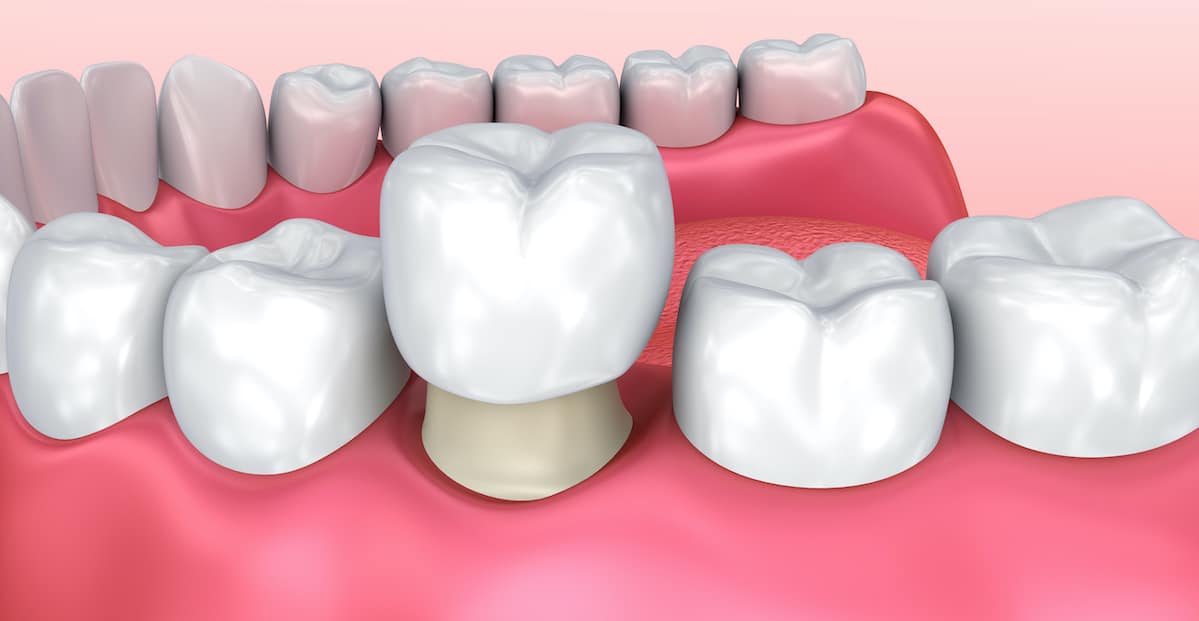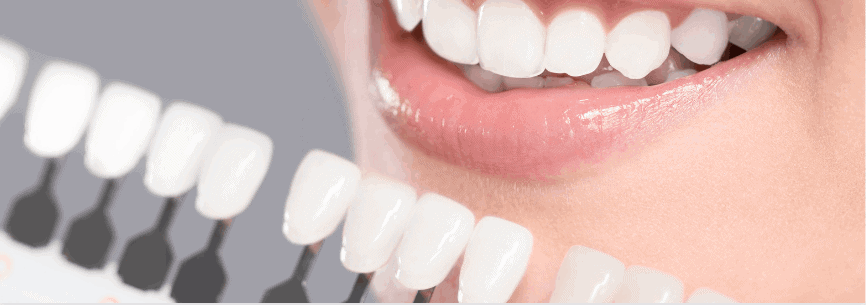
Dental crowns on the NHS: Everything you need to know!
To get dental crowns on the NHS, you need to comply with certain criteria. Find out more about those criterias and the aternatives available to you if you are not eligible! What is a dental crown? 🦷 A dental crown is a fixed prosthesis that looks like a natural tooth, with the same shape and colour. It can be attached to an original tooth that has been shaped if the tooth is still in a good health condition but has been damaged, chipped or stained. However, the crown is attached to a dental implant if the tooth is missing or needs to be removed. A dental crown is also known as a tooth cap. It is a great restorative solution to help a patient gain back their eating, chewing and biting functions. Who needs dental crowns? Firstly, dental crowns are the perfect solution to restore damaged teeth. It is to say, for people with chipped, cracked or broken teeth. It is also made for weakened teeth, as the crown would strengthen it. Lastly, anyone with a tooth decay will be advised a dental crown as a filling is not possible anymore. Secondly, people who would like to improve the aesthetic of their smile can opt for a dental crown. It is a great way to fix misaligned teeth or an unwanted teeth colour. How much does a dental crown cost? A dental crown, compared to a dental implant, is a more affordable option. In the UK, the cost of a dental crown can vary between £500 and £800. However, there are some solutions to lower your cost. Can I get a dental crown on the NHS? 🇬🇧 Yes, you can get a dental crown on the NHS. However, there is an eligibility criterion to respect. You can only get a dental crown on the NHS if it’s for the medical need of a tooth restoration. That is to say that if you would like to fix uneven teeth or fix the colour of your teeth, the NHS won’t take in charge your crowns fees. For a restoration, a dental crown on the NHS is available within the Band 3 in the UK (England, Scotland, Wales, Norther Ireland). The NHS band 3, dedicated to dental crowns and bridges, charges for £306,80. This is the amount you would pay no matter how many crowns you will get, only if it is done under the same treatment course. However, there are some downsides of getting a dental crown under the NHS. Disadvantages of getting a dental crown on the NHS: The appearance 😁 The first inconvenient of dental crowns offered under the NHS is the appearance of the crowns. For back teeth, you will only be able to get metal-coloured crowns, which is not the most aesthetically pleasing type of crown. For front teeth, you will get to have white-coloured crowns, which is more natural looking. However, only one shade of white is available. Unfortunately, it doesn’t always match the variety of shades of natural teeth, going from yellow to white. The dental crowns on the NHS have an inner metal core that can show along the gum line and give a dull look. Additionally, you won’t be able to get all-porcelain crowns or zirconia crowns because of their higher cost. As the crowns provided by the NHS are primarily designed for functional rather than aesthetic purposes, going for a private clinic might be worth it for a more natural look. The waiting time 🕗 The second inconvenient of dental crowns on the NHS is the long waiting times, in both scheduling your initial appointment and having your crown fabricated. NHS dental fees often lead to extended waiting times for specific dental treatments, primarily because they offer a more affordable alternative to private care. To speed up the process, you might want to look at private clinic as they benefit from short waiting lists. What are the alternatives to the NHS? ✈️ Private clinics As mentioned previously, you can choose to go privately to get a more aesthetically pleasing result and avoid long waiting times. With a private clinic, you can easily get all-porcelain crowns or zirconia crowns, and a wide range of option for the colour and the shape of the crown. However, a dental crown in a private clinic can cost up to 3 times more than a dental crown on the NHS. Dental tourism The best solution to go private but still save money is to opt for dental tourism. For the past few years, dental tourism has been rising with many patients travelling abroad to receive their dental treatment. If they do so, it is because the cost of such treatment in they home country is way out of budget. And contrary to the popular belief, adding the flights and the accommodation to the cost of the dental treatment doesn’t make dental tourism more expensive. It is on the other-hand more cost effective. Many Brits have been opting for this solution as they are unable to get an appointment under the NHS or the private dental clinics in the UK are extremely expensive. Countries like Spain, Hungary or Roumania provide outstanding levels of care, all while charging significantly less than what you would find in the UK. That is because of the lower cost of living and renting a place in those countries, and lower minimum wages. However, you can rest assured that a lower cost doesn’t mean a lower quality. These dental clinics work with the same materials as in the UK, are highly equipped with the latest technologies, and the dental surgeons are highly-qualified. What is the best destination for dental tourism? By getting dental crowns abroad, patients save up to 60% compared to the UK. On an international level, Turkey and Tunisia are the most popular destinations for patients seeking dental tourism. Even though these 2 countries offer the lowest prices, the materials they use to place the crowns are not renowned in the UK … Continued

